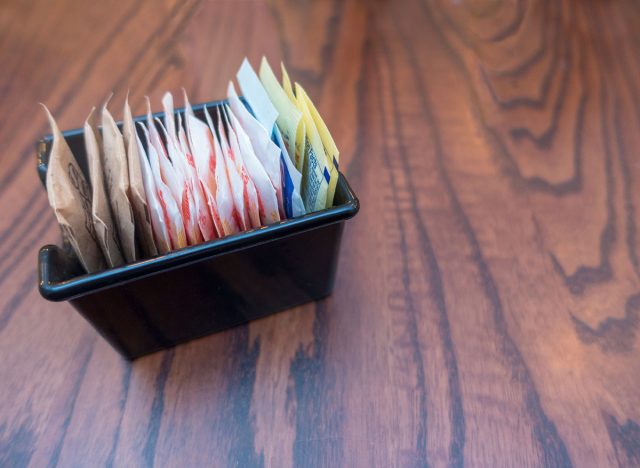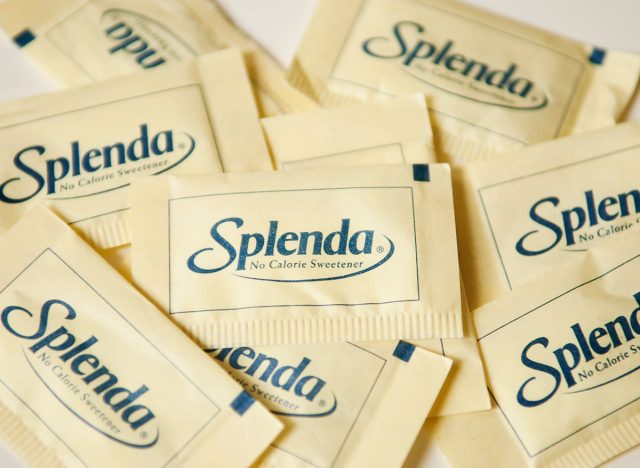On July 14, 2023, two committees associated with the World Health Organization (WHO)—the International Agency for Research on Cancer (IARC) and the Joint FAO/WHO Expert Committee on Food Additives (JECFA)—announced that they were classifying aspartame as a "possibly carcinogenic" food additive. This announcement means that aspartame, which is a popular low-calorie sweetener used in products like Diet Coke and Extra Gum, may be linked to cancer, but much more research is needed before it can be considered conclusive.
Many companies and organizations disagree with IARC and JECFA's announcement. The FDA released a statement on July 14, 2023 as well, stating that they don't support the claims being made, and that the research studies cited by the WHO committees had "significant shortcomings." The FDA also states that they believe aspartame to be safe under the Acceptable Daily Intake (ADI), and that other organizations like Health Canada and the European Food Safety Authority also consider aspartame to be harmless when consumed within the recommended limits.
The original story follows below.
Artificial sweeteners—you know, the ones found in diet sodas, sugar-free baked goods, and the little packets at coffee shops—have been the subject of debate for quite some time, as research on their safety shows mixed results. A review published in Frontiers in Nutrition summarized that some studies show that these artificial sweeteners may help you eat less and lose weight, other studies find no effect on satiety, and others find a link between intake and higher rates of obesity. Suffice it to say, more research is needed to analyze the long-term effects of consuming these synthetic ingredients, and the heat behind this debate is growing. On July 29, 2023, Reuters exclusively reported that the World Health Organization (WHO) is set to declare aspartame, which is also sold to consumers as Equal and NutraSweet, as "possibly carcinogenic to humans" next month.
Popular items like Diet Coke, Trident gum, and certain types of Snapple tea contain aspartame, so the announcement that this sweetener may possibly lead to cancer is significant for both the consumer and the companies involved. But as with any major health-related declaration, this announcement brings with it quite a bit of confusion and conflicting opinions coming from both sides of the debate.

There are multiple groups of people involved in the coming announcements next month. The WHO's cancer research arm is called the International Agency for Research on Cancer (IARC), and this is the group of experts that has made the decision to give aspartame the label of "possibly carcinogenic to humans" next month. According to Reuters, the IARC's role is to look at existing published evidence regarding a substance in order to determine whether or not it is hazardous.
However, what this group doesn't do is determine how much of something you need to consume in order for the substance to potentially cause harm. This job is given to a separate branch of the WHO, called the Joint WHO and Food and Agriculture Organization's Expert Committee on Food Additives (JECFA).
If this isn't already confusing enough, it's said that both groups—IARC and JECFA—are set to release their separate statements on aspartame on the same day—July 14, 2023.

With the upcoming announcement, some people in the industry believe it may cause unnecessary panic from consumers. Frances Hunt-Wood, secretary general of the International Sweeteners Association (ISA), told Reuters, "IARC is not a food safety body and their review of aspartame is not scientifically comprehensive and is based heavily on widely discredited research." Reuters also interviewed Kate Loatman, the International Council of Beverages Association's executive director, who said the announcement "could needlessly mislead consumers into consuming more sugar rather than choosing safe no- and low-sugar options."
While Melissa Rifkin, MS, RDN, CDN acknowledges that the data support the negative side effects of regular consumption of artificial sweeteners, such as aspartame, she tells Eat This, Not That! that the reality is that we're surrounded by numerous environmental factors that may also be damaging our overall health. "While these findings may appear to be more grave, this is not staggering information. We have known for years that heavy consumption of aspartame may cause an increased risk of cancer. But, my cell phone, the air we breathe, and other radioactivity that my body is absorbing on a daily basis, are quite possibly having the same harmful impacts," says the registered dietitian.
Along these same lines, there is also some concern as to whether or not JECFA will change its guidelines on how much aspartame is safe to consume before it becomes "carcinogenic." Since the 1980s, JECFA has stated that aspartame is safe to consume within a large daily limit, and Professor McConway recently told The Guardian that this limit "would require a very large daily consumption of Diet Coke or similar drinks." If JECFA maintains these guidelines after July 14th, it would mean that the average consumer is most likely not getting close to harmful levels.

Another important component to consider is the level of "carcinogen" a certain food like aspartame is classified under. According to Reuter's report, the IARC has four different levels for carcinogens: 1) carcinogenic, 2) probably carcinogenic, 3) possibly carcinogenic, and 4) not classifiable. Aspartame falls under "possibly carcinogenic," meaning that the evidence in humans remains limited. This isn't to say that the possible dangers should be ignored, but it's important to know what these confusing terms actually mean in relation to your health.
Some experts believe that artificial sweeteners like aspartame should be avoided as much as possible, regardless of the daily recommended value. According to registered dietitian Lisa Young, PhD, RDN, author of Finally Full, Finally Slim and member of our Medical Expert Board, "As a nutritionist promoting healthy eating, I advocate for eating whole foods free of chemicals, and that includes artificial sweeteners. Even though they are virtually calorie-free, they don't help to promote weight loss. So it's best to practice portion control and eat less of the real thing while choosing a diet free of artificial ingredients."
Rifkin takes a more practical approach. "Of course, decreasing intake of known carcinogenic substances is suggested, but complete avoidance seems rigid," she suggests.
As is always the case, it seems that the general guidance of "everything in moderation" rings true here. Prioritizing whole, minimally-processed foods is the best way to minimize your intake of these potentially carcinogenic artificial chemicals, but consuming products sweetened with aspartame every once in a while is ok.
Popular foods and drinks that contain aspartame
This sweetener is used in some of your favorite foods and drinks, especially those products that are labeled "sugar free" or "diet." Aspartame is also sold in the form of sugar packets with products like Equal or NutraSweet. Whether you're wanting to try and avoid it altogether or are just interested in knowing where it's found, here's a list of just some of the common products that contain this sweetener additive:
- Diet Coke
- Coke Zero
- Sprite Zero
- Crystal Light
- Fanta Zero
- Sugar-Free Jell-O
- Trident
- Extra
- Mrs. Butterworth's Sugar-Free Syrup
- NutraSweet
- Equal
- Sugar Twin
No comments:
Post a Comment